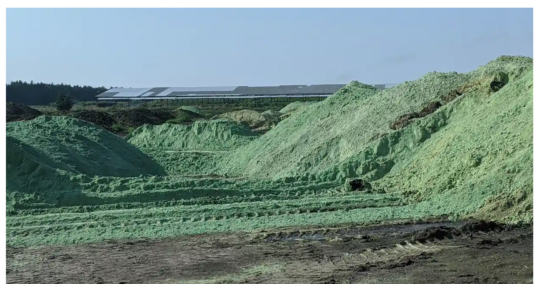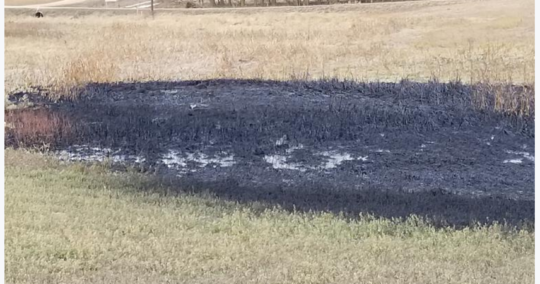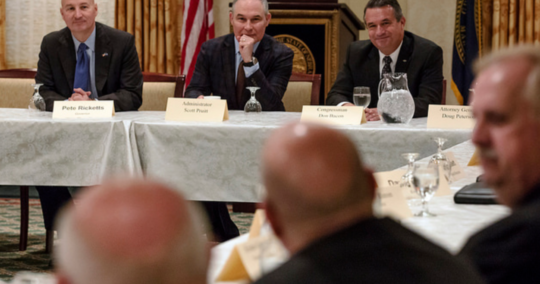For Immediate Release: July 20, 2016
Contact: Jane Kleeb, jane@boldnebraska.com, 402-705-3622
Josh Mogerman, jmogerman@nrdc.org, 312-651-7909
Mark Westlund, mark.westlund@sierraclub.org, 510-841-8329
Andy Pearson, andy@mn350.org, 612-600-5951
Mahyar Sorour, mahyar@mpirg.org, 612-627-4035 ext. 306
Marc Fink, mfink@biologicaldiversity.org, 218-464-0539
David Turnbull, david@priceofoil.org, 202-316-3499
Enbridge Ordered to Pay $177 Million Over Disastrous Michigan Tar Sands Spill
Washington — The Justice Department and EPA today announced a $177 million settlement agreement with Canadian pipeline giant Enbridge over unresolved Clean Water Act claims from a disastrous 2010 tar sands spill that dumped over a million gallons of tar sands crude into the Kalamazoo River.
Six years and over a billion dollars in cleanup efforts later, the river and surrounding bodies of water are still not entirely restored. Far from delivering closure for the communities affected by this spill, today’s announcement serves as yet another reminder of the devastation that can be caused by unreliable tar sands pipelines.
And, according to a new report released last week, faulty pipelines are far more common than previously thought. The documents, released by Canada’s National Energy Board (NEB), show that Enbridge has been using defective parts from overseas suppliers in their pipelines for years, and that they have no way of knowing which of their pipelines contain the defective parts.
This settlement and the revelations from the NEB also highlight the need for the Alberta Clipper tar sands pipeline expansion to go through a full Presidential Permit process, similar to the one that was applied to Keystone XL. The Alberta Clipper pipeline has been allowed to operate at a higher volume without a permanent license or a full environmental review, and continues to threaten the Great Lakes region.
Enbridge’s Kalamazoo disaster may be the most high-profile tar sands spill on record, but as long as dirty oil pipelines are allowed to continue threatening land, water, and Tribal and local communities along their routes, it will certainly not be the last.
“The years spent cleaning the Kalamazoo are a cautionary tale for all of the tar sands projects being contemplated across North America,” said Anthony Swift, Director of NRDC’s Canada Project. “The Kalamazoo River tar sands spill highlights the real costs of this bottom of the barrel oil. Communities being asked to allow tar sands pipelines through their borders, or tankers along their shores, need to understand the industry knows very little about how to address these spills.”
“It is time for our government to decommission pipelines that are decades old and pose a huge risk to our water and property rights,” said Jane Kleeb, Bold Alliance President. “For too long we allowed Big Oil to write the rules on how pipelines are regulated in our communities and it has left citizens at the mercy of corporations who care only about their bottom line.”
“We know when it comes to tar sands pipelines, it’s not a question of if they’ll spill, but when,” said Lena Moffitt, Director of Sierra Club’s Beyond Dirty Fuels campaign. No amount of crude oil being transported near our communities or the Great Lakes is safe and the spill in Kalamazoo serves as a stark reminder of that reality. Enbridge should not be allowed to continue their negligent and dirty business practices, let alone allowed to expand their massive pipelines like Alberta Clipper. As we approach the six-year commemoration of this spill, we know the only way to guarantee the safety of our water and communities is to continue moving towards 100% clean and renewable energy, and leave dirty fuels where they belong — in the ground.”
“Six years have passed with questions unanswered and concerns remain,” said Susan Connolly, a local Michigan mother whose children suffered rashes as a result of the Kalamazoo spill. “The fines enacted by the state/EPA do not reflect the finality of the impact of the spill. The fines related to the Clean Water Act should not be in the form of a ‘settlement’ discussed and agreed to between the agencies and the at fault party. The maximum penalty should be ordered, criminal penalties assessed, and a Michigan Pipeline Trust created. We stand in solidarity in the hopes that the largest inland tar sand spill is never forgotten and lessons are learned.”
“The costs of continuing to use fossil fuels are rising, with massive climate, health, clean water, safety and wildlife impacts. On the sixth anniversary of the Kalmazoo spill, we have to realize many of the town’s residents’ lives were suddenly and permanently changed. It’s time to stop building new fossil fuel infrastructure, and realize the savings that will be generated from a rapid shift to clean energy,” said Kathy Hollander, a longtime volunteer with MN350.
“This settlement pales in comparison to the huge costs the tar sands spill has placed on the community, but what’s even worse is that this figure of $177 million may misrepresent what Enbridge is actually paying,” said David Turnbull, Campaigns Director, Oil Change International. “Thanks to corporate tax loopholes, it’s possible $110 million of the settlement could be tax deductible, meaning some $38 million could come out of taxpayers’ pockets. The EPA and DOJ need to clarify that Enbridge can’t write off the costs of its massive oil spill. Oil spills shouldn’t be business as usual, and imposing damage to communities, ecosystems and the climate can no longer simply be considered the cost of doing business.”



